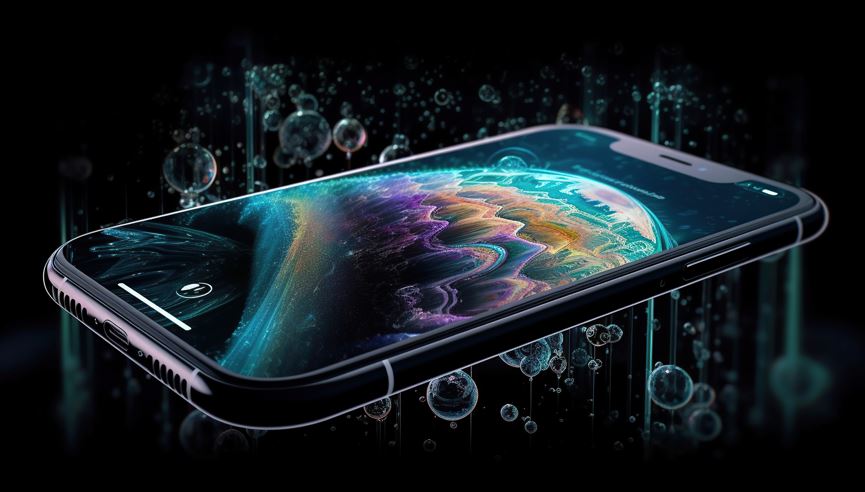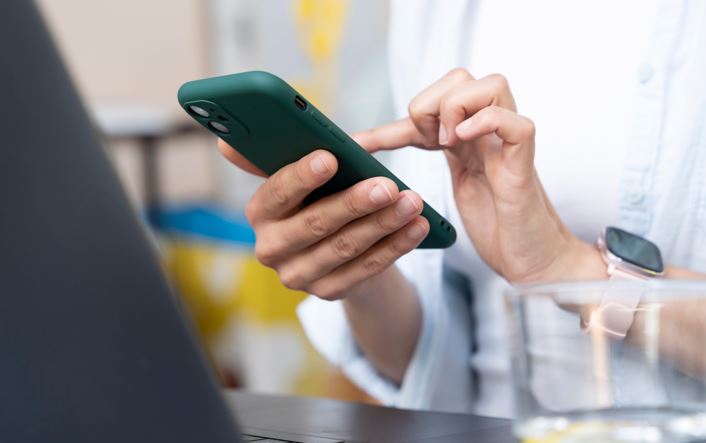The future of smartphone technology - trends to watch
26th June 2024
Diane Marley
Smartphones have become an critical aspect of daily life, continuously adapting to meet the requirements of contemporary society. The current trends in smartphone technology, ranging from 5G technology to augmented reality and artificial intelligence, are significantly influencing communication, work, and leisure activities.
The advent of foldable screens has ushered in a realm of limitless opportunities. However, it is crucial to analyze the societal impact of this technology, considering both its positive and negative implications. Moreover, what developments can be anticipated in the future?
We invite you to accompany us on an exploration of the progression of smartphone technology and strategies to remain at the forefront in this dynamic and evolving landscape.
Evolution of Smartphone Technology
The progression of smartphone technology has been an impressive journey characterized by ongoing advancements and innovations. Starting from the early days of basic mobile communication to the contemporary era of sophisticated handheld devices, smartphones have transformed the way individuals engage with technology and with one another.
As smartphones have advanced, significant milestones such as the advent of touchscreens, app stores, and internet connectivity have redefined the industry. Technological breakthroughs such as enhanced camera quality, increased processing capabilities, and the integration of artificial intelligence have further elevated user experiences.
The impact of smartphones on daily life is unmistakable in their role as critical tools for communication, entertainment, productivity, and even health monitoring. Users now depend on smartphones for maintaining connectivity, accessing immediate information, and seamlessly managing various aspects of their lives.
Current Trends in Smartphone Technology
The present trends in smartphone technology indicate a dynamic landscape shaped by user-centric features, improved connectivity options, and an emphasis on enhancing user experiences. As technology continues to progress, smartphones are integrating state-of-the-art features to meet the needs of today's users.
The incorporation of Artificial Intelligence (AI) integration has emerged as a prominent feature, enableing smartphones to adjust and customize experiences based on user interactions. The advent of 5G technology has transformed connectivity, facilitating quicker speeds and seamless data transfer. Furthermore, user experience design has witnessed notable enhancements, with user-friendly interfaces and streamlined navigation becoming typical features in various smartphone models. These advancements collectively contribute to a smartphone experience that is more immersive, efficient, and user-friendly.
5G Technology
The advent of 5G technology signifies a substantial advancement in connectivity, offering accelerated speeds, reduced latency, and increased data transmission capacity. Serving as the cornerstone for the Internet of Things (IoT) and forthcoming developments, 5G is poised to reshape the interactions between smartphones, devices, and the digital realm.
The ramifications of 5G's high-speed connectivity transcend the realm of smartphones. Its influence on the IoT is profound, facilitating seamless and efficient communication among interconnected devices. With the capability to accommodate a vast number of concurrent connections, 5G supports the smooth functioning of intelligent homes, cities, and industries.
The enhancements in data transmission speeds provided by 5G lay the groundwork for instantaneous data processing and analysis, revolutionizing sectors such as healthcare, transportation, and manufacturing. This technological breakthrough not only enhances user experiences but also fosters innovation across diverse industries, propelling society towards a more interconnected and efficient future.
Augmented Reality
Augmented Reality (AR) is an innovative technology that superimposes digital content onto the physical world, enriching user interactions and introducing new opportunities for interactive applications. Smartphones have emerged as pivotal platforms for AR experiences, bridging the gap between the virtual and tangible domains.
The integration of AR within smartphone technology has brought about a transformative impact across multiple sectors, including retail, gaming, education, and healthcare. Retail establishments utilize AR to deliver immersive shopping experiences, enabling consumers to preview products within real-world environments prior to making purchasing decisions. Within the gaming industry, AR games such as Pokemon Go have garnered widespread popularity by merging virtual components with physical surroundings. Educational institutions employ AR for interactive learning experiences, enhancing the comprehension and engagement levels surrounding intricate subject matters. Furthermore, in the realm of healthcare, AR facilitates surgical simulations, medical training initiatives, and patient education efforts, underscoring the substantial capabilities of this technology in enhancing various facets of everyday life.
Artificial Intelligence
Artificial Intelligence (AI) has significantly transformed smartphone technology, enabling the provision of personalized experiences, predictive capabilities, and increased automation. Through the incorporation of AI, smartphones now offer users advanced functionalities such as virtual assistants and sophisticated camera features, fundamentally altering the manner in which individuals engage with their devices and their surrounding environment.
Utilizing AI, smartphones can accurately interpret user behaviors and preferences, providing tailored recommendations and services. The incorporation of AI algorithms serves to streamline tasks, ranging from organizing schedules to bolstering security protocols via facial recognition technology. This intelligent integration enables smartphones to adapt and learn from user actions, thereby fostering a more seamless and intuitive user experience.
AI-driven features like smart replies and predictive text significantly enrich communication practices, whereas cutting-edge functionalities like voice recognition continually expand the horizons of smartphone capabilities.
Foldable Screens
Foldable screens have emerged as a revolutionary innovation in smartphone design, providing users with the flexibility to switch between traditional smartphone mode and a larger screen experience. These state-of-the-art displays signify a new paradigm in device form factors and user interactions.
As the technology behind foldable screens continues to progress, manufacturers are exploring new frontiers in design and engineering. Starting from the initial versions that encountered durability issues to the current models that exhibit enhanced durability and stylish aesthetics, the development in foldable screen technology has been noteworthy.
These enhancements have not only revolutionized the physical appearance of smartphones but have also transformed how users interact with their devices. The smooth transition from a compact phone to a tablet-like experience has introduced new opportunities for multitasking, content consumption, and productivity on the move.
The Impact of Smartphone Technology on Society
The influence of smartphone technology on society is significant, fundamentally altering the way individuals communicate, work, and interact with their surroundings. While smartphones have facilitated improved connectivity and convenience, they have also sparked apprehensions regarding privacy, digital well-being, and societal conduct.
The pervasive presence of smartphones in contemporary society has not solely revolutionized communication trends but has also redefined how individuals navigate their daily routines. As people increasingly depend on smartphones for instant messaging, social media engagement, and professional responsibilities, the distinction between personal and work spheres continues to blur.
This perpetual interconnectivity has prompted a shift in societal conventions, with individuals experiencing a compulsion to remain constantly reachable and responsive. The proliferation of smartphone technology has ushered in an era of heightened digital privacy concerns, characterized by a rise in data breaches and encroachments upon personal information.
Positive and Negative Effects
The proliferation of smartphones has precipitated a host of both favorable and unfavorable consequences for individuals and society. While these devices provide heightened connectivity, productivity, and access to information, they also engender issues pertaining to privacy, digital overdependence, and health-related matters.
It is irrefutable that smartphones have transformed the landscape of communication, professional engagements, and health monitoring. Endowed with a myriad of applications and functionalities readily accessible at users' fingertips, these devices facilitate the monitoring of fitness goals, efficient schedule management, and seamless connectivity with acquaintances irrespective of geographical boundaries. The convenience and adaptability afforded by smartphones undeniably yield a positive influence on user satisfaction and overall welfare.
Amidst the aforementioned advantages, apprehensions regarding the potential hazards accompanying the extensive utilization of smartphones have surfaced. Instances of data security breaches, prolonged screen exposure leading to sleep disturbances, and apprehensions regarding the enduring impact on mental well-being are increasingly pervasive. Striking a balance between the advantageous aspects and pitfalls of smartphone technology is imperative to harness its potential while ameliorating the risks it entails.
Predictions for the Future of Smartphone Technology
Envisioning the future of smartphone technology entails anticipating a landscape characterized by increasingly sophisticated features, seamless connectivity, and enhanced user experiences. As technological advancements continue to progress, smartphones are on the brink of undergoing transformative changes that will redefine the dynamics of our interaction with digital devices.
Foreseeable trends may entail the incorporation of AI-powered processors in smartphones to augment device performance and efficiency. Progress in camera technology could lead to the introduction of more advanced photography capabilities in smartphones. The industry is shifting its focus towards foldable displays, presenting opportunities for innovative form factors that seamlessly blend style and functionality. Additionally, it is anticipated that augmented reality (AR) and virtual reality (VR) applications will become fundamental components of the smartphone experience, offering users immersive and interactive functionalities.
Possible Advancements and Innovations
The future of smartphone technology presents promising prospects for advancements and innovations that have the potential to revolutionize the interaction with digital devices. Ranging from AI-driven virtual assistants to the integration of wearable technology, the forthcoming generation of smartphone features is poised to enrich user experiences and redefine the benchmarks within the industry.
The incorporation of AI into smartphones is anticipated to deliver not only more intelligent virtual assistants but also customized experiences that cater to the individual preferences of users. Envision a smartphone that assimilates your routines and foresees your requirements even before you become aware of them. Concurrently, the progress in wearable technology, such as smartwatches and augmented reality glasses, will further diminish the barrier between the digital realm and the physical world, providing effortless connectivity and instantaneous access to information. These advancements signify a future in which smartphones transcend their conventional role as mere communication tools, transforming into critical companions.
How to Keep Up with the Changing Landscape
Remaining informed and adapting to the dynamic landscape of smartphone technology is crucial for users to optimize their device's capabilities and remain at the forefront of trends. By staying abreast of industry updates, exploring new features, and embracing evolving user experiences, individuals can fully leverage the potential of their smartphones.
One method of staying informed about smartphone technology trends is to subscribe to tech blogs or newsletters that consistently offer insights into the latest advancements. Engaging in online forums or communities dedicated to smartphones can provide a plethora of knowledge and firsthand experiences from fellow users. Embracing connectivity advancements like cloud storage and smart home integration can further augment the functionality of smartphones. Actively participating in tech events or webinars can also furnish valuable insights into forthcoming features and innovations within the smartphone industry.
Tips for Staying Updated on Smartphone Technology Trends
Remaining knowledgeable about smartphone technology trends necessitates a proactive approach to exploring novel features, comprehending industry advancements, and capitalizing on connectivity progress. By monitoring reputable tech outlets, engaging with user communities, and experimenting with emerging technologies, individuals can remain informed and optimize their smartphone interactions.
Participation in industry conferences and webinars can furnish valuable insights into forthcoming trends and innovations. Additionally, collaborating with tech-proficient acquaintances or engaging in online discussion forums can cultivate knowledge-sharing and aid in navigating the constantly changing terrain of smartphone technology. Encouraging hands-on exploration of new attributes and functionalities can further refine user expertise and ensure a seamless technological encounter. Embracing a mindset of continuous learning and adaptability is paramount to staying abreast of the swiftly advancing realm of smartphone technology.















